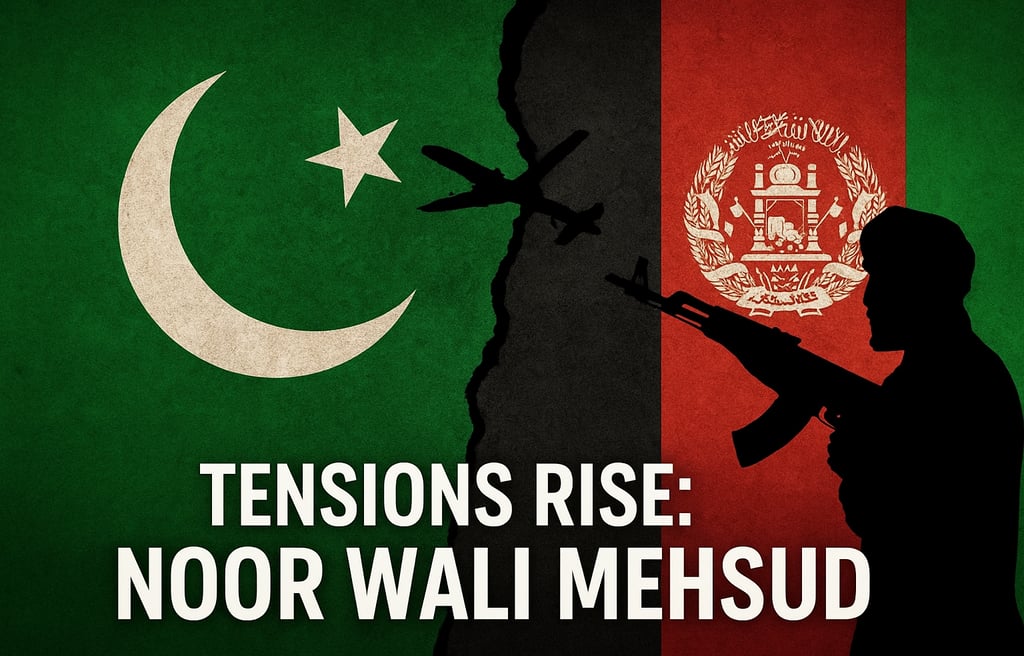Pakistan-Afghanistan Tensions: Militant Leader Noor Wali Mehsud’s Role in Escalation
Pakistan and Afghanistan face rising tensions as TTP leader Noor Wali Mehsud allegedly directs cross-border attacks, raising serious regional concerns.
Raja Awais Ali
10/16/20252 min read


Pakistan-Afghanistan Tensions: Militant Leader Noor Wali Mehsud’s Role
Tensions between Pakistan and Afghanistan have sharply escalated, with Noor Wali Mehsud, the leader of Tehrik-i-Taliban Pakistan (TTP), emerging as a central figure in the renewed conflict. Pakistani authorities allege that Mehsud has been orchestrating cross-border attacks from Afghan territory, intensifying security and diplomatic friction between the two nations.
Background of Noor Wali Mehsud
Noor Wali Mehsud assumed leadership of the TTP in 2018, following the death of Mullah Fazlullah. Under his command, the group has conducted several operations targeting Pakistan’s security forces and government installations. After the Taliban’s return to power in Afghanistan in 2021, the TTP reportedly found safe havens across the border, allowing it to expand operations and strengthen its network.
Mehsud’s leadership emphasizes a mix of Pashtun nationalism and militant ideology, seeking to impose a Taliban-style governance model in Pakistan’s former tribal areas. His ability to unite various TTP factions has increased the group’s operational effectiveness.
Recent Clashes and Border Escalation
Pakistan reportedly conducted an airstrike targeting Mehsud earlier this week, though he is believed to have survived. In the aftermath, Afghan Taliban fighters were accused of launching attacks on Pakistani border posts in the Kurram and Chaman–Spin Boldak regions, leading to dozens of casualties on both sides.
Pakistan responded with air and drone strikes on suspected militant positions along the border, further heightening tensions. The conflict has caused significant civilian displacement in several frontier districts, while both sides accuse each other of violating territorial sovereignty.
International Response
The United Nations has urged both countries to exercise restraint to prevent further civilian harm. China, Russia, and the United States have also called for de-escalation and offered to facilitate dialogue to restore stability along the border.
Ceasefire and Future Implications
On October 15, 2025, Pakistan and Afghanistan agreed to a temporary 48-hour ceasefire to allow humanitarian aid and communication channels to reopen. However, deep mistrust and unresolved border issues continue to hinder long-term peace efforts.
The continued presence of Noor Wali Mehsud and allegations that the Afghan Taliban are providing safe havens for TTP members remain key obstacles to normalization. Analysts warn that without effective diplomatic engagement, the conflict could heighten terrorism risks and regional instability across South Asia.
Stay informed with the latest national and international news.
© 2025. All rights reserved.